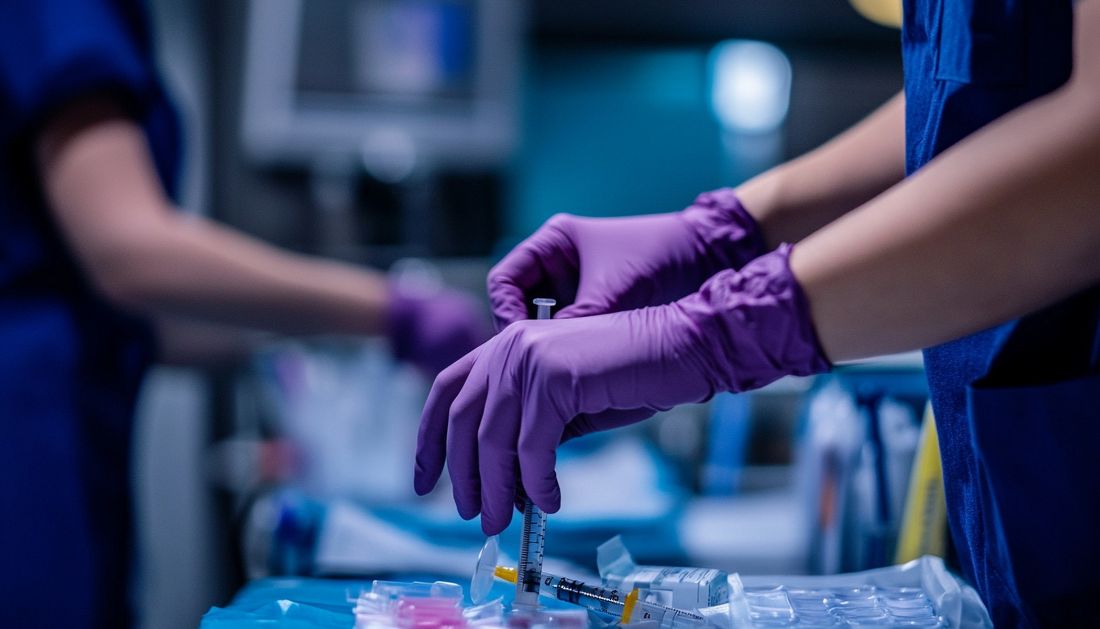

A groundbreaking project from the University of South Australia (UniSA) is set to transform how gastrointestinal (GI) cancers are detected and treated. Backed by a $405,050 AEA Ignite Grant, researchers are developing a quantum technology-based laparoscopic probe that enables surgeons to more precisely locate cancerous lymph nodes—minimizing tissue removal and improving recovery.
Quantum Technology in Cancer Surgery: How It Works
The probe integrates state-of-the-art quantum sensors with Ferronova’s iron-oxide nanoparticle formulation (FerroTrace) to detect cancer spread more accurately. Unlike traditional surgical methods that often involve removing large sections of tissue—leading to complications and long-term side effects—this innovation supports safer, minimally invasive procedures.
“By embedding quantum sensors into a laparoscopic probe, we aim to make surgeries more targeted and less traumatic for patients,” says Dr. Nicole Dmochowska, lead researcher at UniSA’s Future Industries Institute.
Clinical Promise and Market Potential in Cancer Surgery
The research team has already proven the feasibility of quantum sensor magnetometer probes in a successful oral cancer clinical trial. This next phase focuses on miniaturizing the technology for laparoscopic surgeries.
With GI cancers among the deadliest globally, and the global market for precision cancer tools projected to surpass $2 billion annually, the commercial and clinical potential is enormous.
Quantum Technology in Cancer Surgery: A Safer, Smarter Approach
Unlike current lymph node mapping methods that rely on radioactive tracers, the quantum probe and FerroTrace offer a safer alternative, especially for patients undergoing chemo or radiation before surgery.
“This could be a paradigm shift in cancer treatment,” says Dr. Aidan Cousins, senior researcher at Ferronova. “It’s about giving patients better outcomes and a better quality of life.”
Preclinical Trials for Quantum Cancer Surgery Technology
The next step: develop a fully functional, validated prototype for large animal trials, a key milestone before human clinical trials. This project aligns with Australia’s national priorities in both medical innovation and quantum technology, and could shape the future of cancer surgery worldwide.
For more information: University of South Australia
more recommended stories
 Red Blood Cells Improve Glucose Tolerance Under Hypoxia
Red Blood Cells Improve Glucose Tolerance Under HypoxiaKey Takeaways for Clinicians Chronic hypoxia.
 Nanoplastics in Brain Tissue and Neurological Risk
Nanoplastics in Brain Tissue and Neurological RiskKey Takeaways for HCPs Nanoplastics are.
 AI Predicts Chronic GVHD Risk After Stem Cell Transplant
AI Predicts Chronic GVHD Risk After Stem Cell TransplantKey Takeaways A new AI-driven tool,.
 Red Meat Consumption Linked to Higher Diabetes Odds
Red Meat Consumption Linked to Higher Diabetes OddsKey Takeaways Higher intake of total,.
 Pediatric Crohn’s Disease Microbial Signature Identified
Pediatric Crohn’s Disease Microbial Signature IdentifiedKey Points at a Glance NYU.
 Nanovaccine Design Boosts Immune Attack on HPV Tumors
Nanovaccine Design Boosts Immune Attack on HPV TumorsKey Highlights Reconfiguring peptide orientation significantly.
 High-Fat Diets Cause Damage to Metabolic Health
High-Fat Diets Cause Damage to Metabolic HealthKey Points Takeaways High-fat and ketogenic.
 Acute Ischemic Stroke: New Evidence for Neuroprotection
Acute Ischemic Stroke: New Evidence for NeuroprotectionKey Highlights A Phase III clinical.
 Statins Rarely Cause Side Effects, Large Trials Show
Statins Rarely Cause Side Effects, Large Trials ShowKey Points at a Glance Large.
 Anxiety Reduction and Emotional Support on Social Media
Anxiety Reduction and Emotional Support on Social MediaKey Summary Anxiety commonly begins in.

Leave a Comment